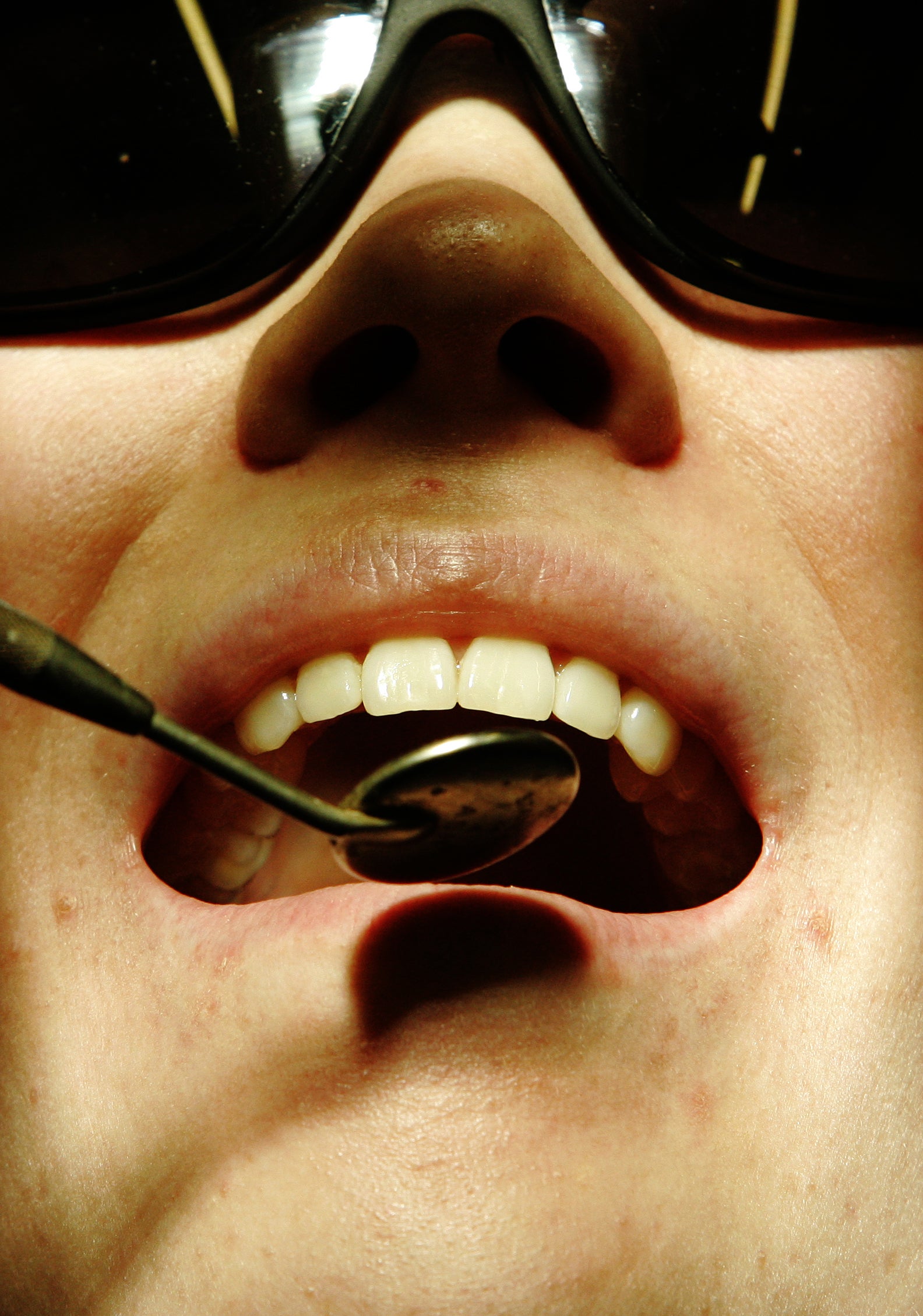Thousands of dentists stop providing NHS services
The British Dental Association has warned ‘ this is how NHS dentistry will die’.

Your support helps us to tell the story
From reproductive rights to climate change to Big Tech, The Independent is on the ground when the story is developing. Whether it's investigating the financials of Elon Musk's pro-Trump PAC or producing our latest documentary, 'The A Word', which shines a light on the American women fighting for reproductive rights, we know how important it is to parse out the facts from the messaging.
At such a critical moment in US history, we need reporters on the ground. Your donation allows us to keep sending journalists to speak to both sides of the story.
The Independent is trusted by Americans across the entire political spectrum. And unlike many other quality news outlets, we choose not to lock Americans out of our reporting and analysis with paywalls. We believe quality journalism should be available to everyone, paid for by those who can afford it.
Your support makes all the difference.Thousands of high street dentists in England are “severing ties” with the NHS, which could leave millions of patients “with no options”, leading dentists have warned.
The British Dental Association (BDA) said that if the current trend continues “this is how NHS dentistry will die”.
Access to NHS dentists is one of the main worries for patients, with many unable to get appointments or being forced to wait months for care.
The BDA said that since March 2020, some 3,000 dentists are understood to have moved away from NHS work entirely.
Most dentists provide a mixture of NHS and private dental care, but new figures suggest the balance could shift in favour of more private provision.
A new poll of 2,200 high street dentists in England found that 45% have reduced their NHS commitment since the start of the pandemic.
The figures, shared with the PA news agency, also found that 75% are “likely” to reduce, or further reduce, their NHS commitment in the next 12 months.
Almost two thirds (65%) have said their practice has unfilled vacancies for dentists while 87% said they have experienced symptoms of stress, burnout or other mental health problems in the last 12 months, according to the BDA poll.
The professional body is calling for “radical and urgent” action from the Government to help struggling dentists.
This is how NHS dentistry will die, a lingering decline that unchecked will leave millions of patients with no options
It said the NHS dental contract, which was initiated in 2006, puts “targets ahead of patient need, effectively setting a limit on the numbers of NHS treatments a dentist can do in a year”.
Shawn Charlwood, chairman of the British Dental Association’s General Dental Practice Committee, said: “Overstretched and underfunded, thousands of dentists have already left the NHS, but many more have begun severing their ties.
“This is how NHS dentistry will die, a lingering decline that unchecked will leave millions of patients with no options.
“This Government has ensured many dentists cannot see a future in this service. Without urgent reform and adequate funding there is little hope we can halt this exodus.”
It comes as MPs on the Health and Social Care Committee are to examine issues in the sector at a meeting on Tuesday.
Feryal Clark, Labour’s shadow health minister, said: “People are finding it impossible to see a dentist after a decade of Tory mismanagement of NHS dentistry.
“At a time when the cost-of-living crisis is hitting people across the country, going private is simply not an option for many.
“Labour will provide the NHS with the staff, equipment and modern technology needed to get patients seen on time.”
Minister for patient safety and primary care, Maria Caulfield, said the Government is “working closely with the NHS to reform the dental system and we are currently negotiating improvements to the contract with the British Dental Association to ensure that working in the NHS remains attractive to dentists”.
She added: “We have given the NHS £50 million to fund up to 350,000 extra dental appointments and we are growing the workforce so people can get the oral care they need.
“As we now learn to live with Covid, we have been working with the sector to safely increase activity and practices are now expected to deliver at least 95% of the activity they were delivering before the pandemic.”